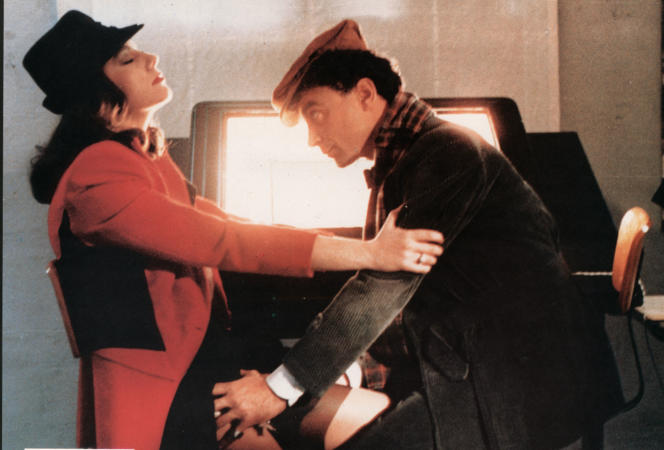He has long been celebrated by a handful of admirers, but he remains little known to the general French public due to the erratic, if not non-existent, distribution of his films in France since the mid-1980s. common practice, almost obligatory, for some moviegoers to rush into the screening rooms of the Film Market at the Cannes Film Festival to discover, each year, the new production signed Tinto Brass. A wise precaution, because it was not at all guaranteed that it would then have a commercial release in theaters.
His years of apprenticeship took place in particular in Paris, at the Cinémathèque française, where he held various positions in his youth. He was also the assistant of Alberto Cavalcanti and Roberto Rossellini (General Della Rovere, 1959). His first films are part of an avant-garde and political cinema with titles like who works is lost (1963) or Yankee (1966), psychedelic western.
If Kitty Loungein 1976, followed by caligulathree years later, took his career off course, it was with The key (1983) that he will claim to have found his way, that of a solar and libertarian eroticism, imbued with the theories of a Wilhelm Reich, expression of an unbridled, unscrupulous exaltation of the female body. The publisher Sidonis Calysta is releasing two of his films on Blu-ray which inaugurate his second period, The key And Miranda (1985).
Altar to the beauty of Stefania Sandrelli
The key is the adaptation of a novel by the Japanese writer Junichiro Tanizaki (1886-1965). Brass had also convinced the reluctant producers to finance the film by claiming – falsely – that Tanizaki had won the Nobel Prize. Shot in 1983, the film follows the complicated experience that was caligula, a sumptuous erotic peplum which the filmmaker ultimately refused to direct. Notably because Bob Guccione (1930-2010), the magazine’s owner Penthousewho was the producer, had filmed pornographic sequences behind his back.
In The key, the British actor Frank Finlay (1926-2016) embodies a grand bourgeois intellectual, married to a woman younger than him. In order to spice up marital relations watched by routine and weighed down by his wife’s stuck conformism, he sets up various devices supposed to increase tenfold her sensuality and her own jealousy, felt as an exquisite torture.
Writing an immodest diary that he lets his wife discover, circulation of naked photos of her, everything is good to provoke a puritanical social order (we are in the middle of a fascist period) and revive a marriage threatened with exhaustion in a Venice of which Brass recalls, in the interview appearing as a supplement to the film, that Apollinaire described it as “the female sex of Europe”. With The key, Tinto Brass erects a veritable altar to the sensual beauty of Stefania Sandrelli. The film, which will cause a scandal and will be temporarily withdrawn from the poster by the censors, will meet with enormous commercial success in Italy.
You have 35.52% of this article left to read. The following is for subscribers only.
